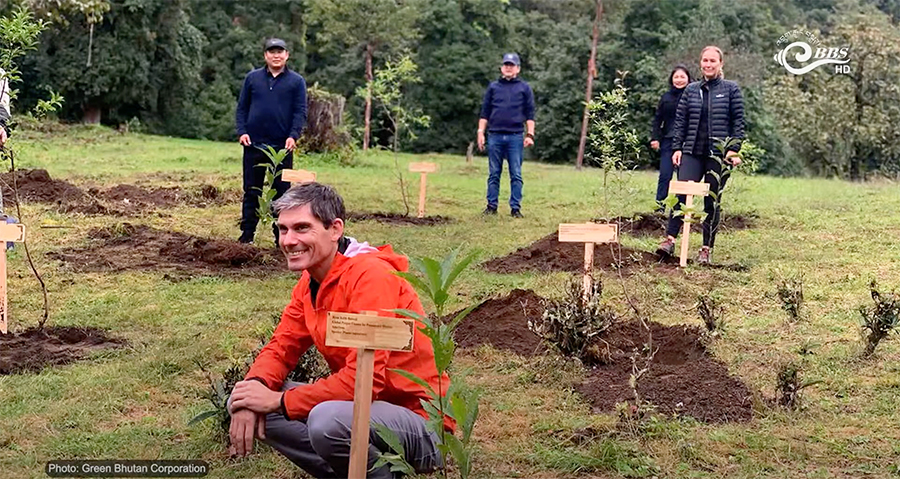 Bhutan’s forests are getting a helping hand from travellers around the world. Since July 2023, more than 200 tourists have planted trees through the Carbon Offset Revolution and Plant for Tomorrow programme, an initiative by Green Bhutan Corporation. Designed to raise awareness about carbon footprints and climate change, the programme allows visitors to leave a lasting green mark while supporting Bhutan’s conservation efforts.
Bhutan’s forests are getting a helping hand from travellers around the world. Since July 2023, more than 200 tourists have planted trees through the Carbon Offset Revolution and Plant for Tomorrow programme, an initiative by Green Bhutan Corporation. Designed to raise awareness about carbon footprints and climate change, the programme allows visitors to leave a lasting green mark while supporting Bhutan’s conservation efforts.
The Carbon Offset Revolution and Plant for Tomorrow programme welcomes both locals and tourists.
 However, so far, only tourists have participated, planting Himalayan flowering dogwood and bird cherry saplings in Bumthang and Royal Botanical Park at Lamperi.
However, so far, only tourists have participated, planting Himalayan flowering dogwood and bird cherry saplings in Bumthang and Royal Botanical Park at Lamperi.
Green Bhutan Corporation also plans to expand the programme to Punakha, Paro, Trashigang and other popular tourist destinations in the country.
The corporation charges a minimum fee of 25 US dollars per sapling for tourists. Saplings will be provided at a cheaper rate for Bhutanese planters.
The planters are then provided with geo-coordinates for their trees, allowing them to track their growth from anywhere in the world.
The corporation says it ensures the saplings are nurtured until they grow into trees.
“The best part of Plant for Tomorrow is that once tourists plant their trees, Green Bhutan Corporation guarantees their care and eventual growth into mature trees,” said Karma Jigme Temphel, the CEO of the Green Bhutan Corporation.
He said his office works with travel agents and includes tree planting as part of their tour itineraries.
The CEO said, “Initiatives like Plant for Tomorrow provide tourists and Bhutanese alike with a unique opportunity to contribute to environmental conservation. Planting trees in Bhutan holds great significance for conservation efforts.”
As more tourists show interest in the programme, he says travel agents are coming forward to collaborate.
This innovative ecotourism aims not only to help Bhutan offset carbon emissions but also to promote the country as a leader in sustainability.
Kelzang Chhophyel
Edited by Sangay Chezom








